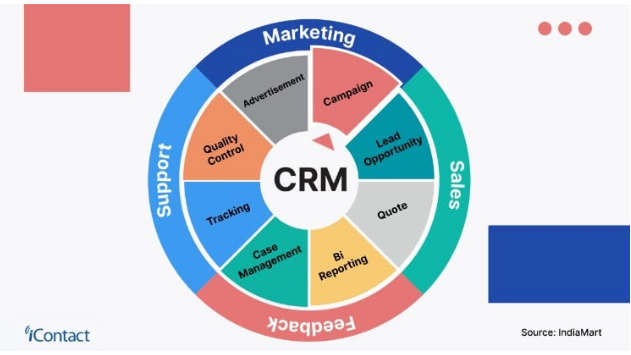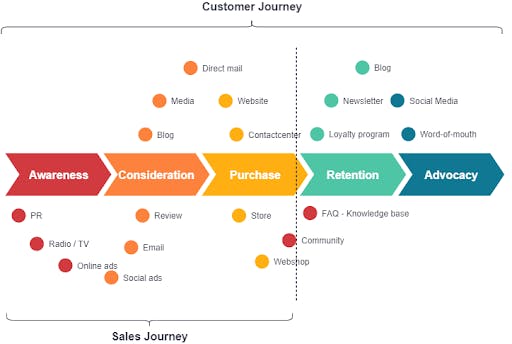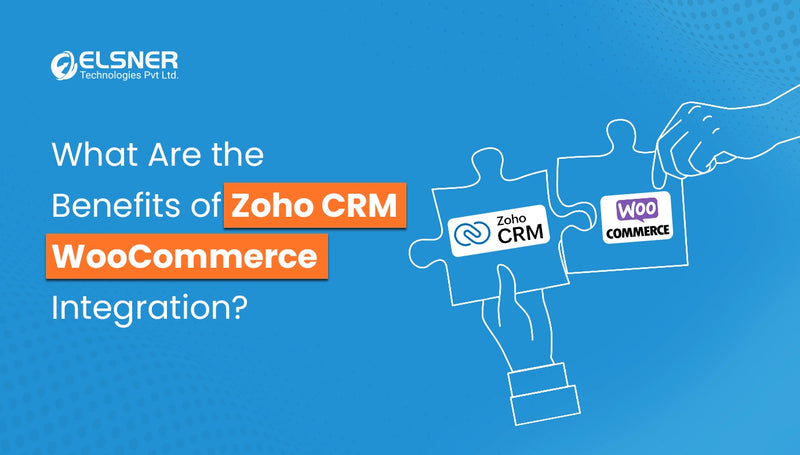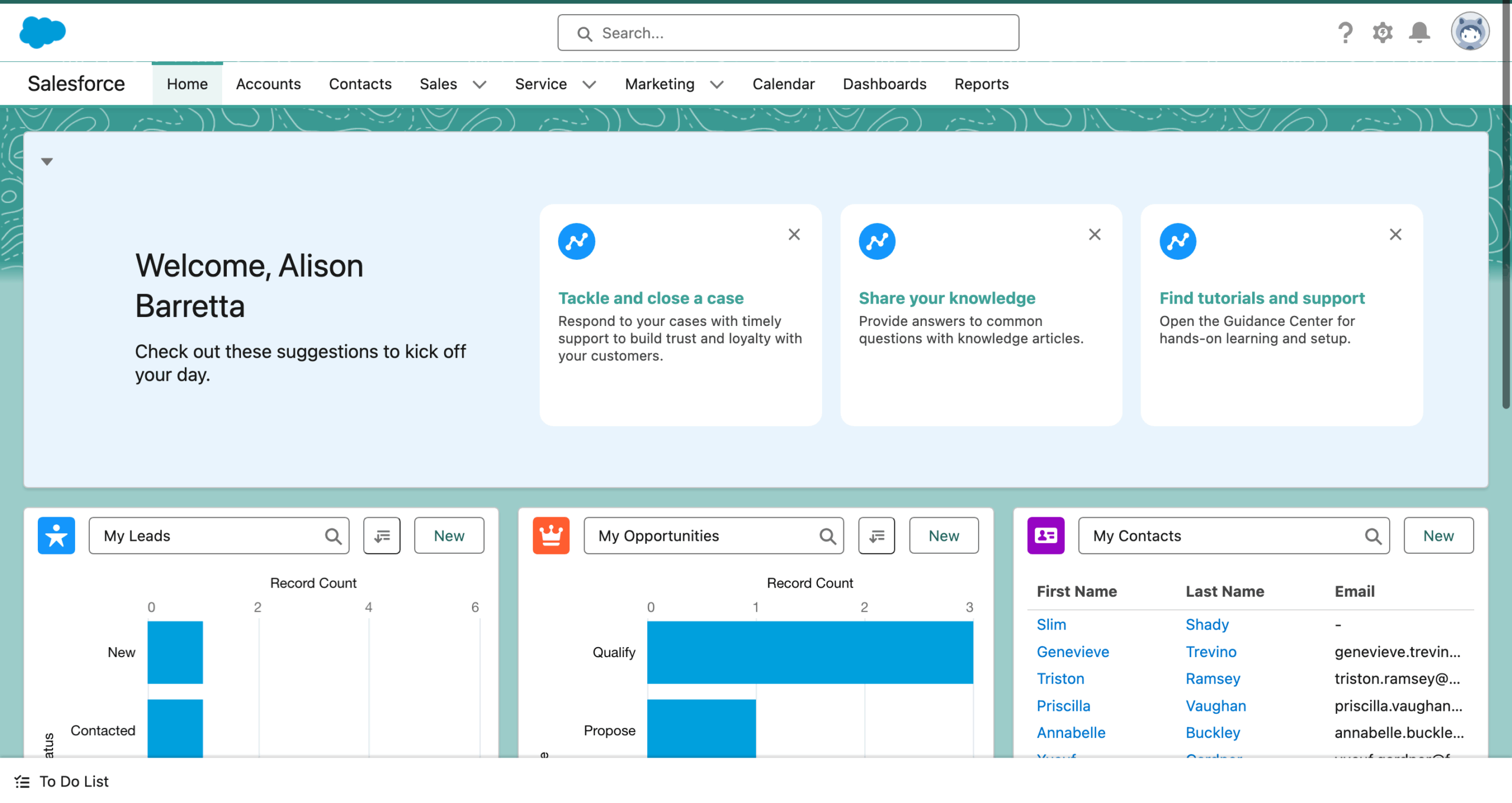
Unlocking Growth: A Comprehensive Guide to CRM Marketing Campaigns
In the ever-evolving landscape of digital marketing, staying ahead requires more than just a good product or service. It demands a deep understanding of your customers and a strategic approach to engaging with them. This is where CRM (Customer Relationship Management) marketing campaigns come into play. They’re not just about sending out emails; they’re about building lasting relationships, understanding customer behavior, and tailoring your marketing efforts to resonate with each individual.
This comprehensive guide will delve into the world of CRM marketing campaigns, exploring their intricacies, benefits, and the steps you need to take to create successful ones. We’ll cover everything from the basics to advanced strategies, ensuring you have the knowledge and tools to transform your marketing efforts and drive significant growth.
What is CRM Marketing?
Before we dive into campaigns, let’s establish a firm understanding of CRM marketing. At its core, CRM marketing is a data-driven approach that focuses on building and nurturing relationships with customers. It leverages customer data collected through various touchpoints to create personalized and relevant marketing experiences.
Think of it like this: imagine knowing exactly what each customer needs, when they need it, and how they prefer to receive it. That’s the power of CRM marketing. It allows you to move beyond generic marketing messages and deliver targeted content that resonates with each customer, increasing engagement, loyalty, and ultimately, revenue.
Key Components of CRM Marketing
- Customer Data: This is the foundation of any CRM strategy. It includes everything from basic contact information to purchase history, website activity, and interactions with your customer service team.
- CRM Software: The software that stores, manages, and analyzes customer data. Popular CRM platforms include Salesforce, HubSpot, Zoho CRM, and Microsoft Dynamics 365.
- Segmentation: Dividing your customer base into distinct groups based on shared characteristics, such as demographics, purchase history, or behavior.
- Personalization: Tailoring your marketing messages and offers to individual customers based on their specific needs and preferences.
- Automation: Using technology to automate repetitive tasks, such as email marketing, lead nurturing, and customer service interactions.
- Analytics: Tracking and analyzing key metrics to measure the performance of your CRM marketing campaigns and identify areas for improvement.
The Benefits of CRM Marketing Campaigns
Why should you invest in CRM marketing campaigns? The benefits are numerous and can significantly impact your bottom line. Here are some of the key advantages:
Enhanced Customer Experience
By understanding your customers’ needs and preferences, you can create more personalized and relevant experiences. This leads to increased customer satisfaction, loyalty, and advocacy. Customers appreciate feeling understood and valued, and CRM marketing allows you to deliver on that promise.
Increased Sales and Revenue
Personalized marketing messages are more likely to resonate with customers, leading to higher conversion rates and increased sales. CRM marketing allows you to identify and target the most promising leads, nurture them through the sales funnel, and ultimately close more deals.
Improved Customer Retention
Retaining existing customers is often more cost-effective than acquiring new ones. CRM marketing helps you build strong relationships with your customers, leading to increased loyalty and repeat business. By providing excellent customer service, personalized offers, and ongoing engagement, you can keep your customers coming back for more.
Better Lead Generation
CRM systems can help you identify and nurture leads, guiding them through the sales funnel. By tracking lead behavior and interactions, you can tailor your messaging and offers to increase their likelihood of converting into customers. This means more qualified leads and a more efficient sales process.
Data-Driven Decision Making
CRM systems provide valuable data and analytics that can inform your marketing strategies. By tracking key metrics, you can measure the performance of your campaigns, identify areas for improvement, and make data-driven decisions to optimize your results. This ensures that you’re investing your resources in the most effective strategies.
Creating Effective CRM Marketing Campaigns: A Step-by-Step Guide
Now that we’ve established the importance of CRM marketing, let’s explore how to create effective campaigns. Here’s a step-by-step guide to help you get started:
1. Define Your Goals and Objectives
Before you start planning your campaign, it’s essential to define your goals and objectives. What do you want to achieve with your CRM marketing efforts? Are you trying to increase sales, improve customer retention, generate more leads, or something else? Be specific and set measurable goals. For example, instead of saying “increase sales,” aim to “increase sales by 15% in the next quarter.” Having clear goals will help you track your progress and measure the success of your campaign.
2. Understand Your Target Audience
Who are you trying to reach with your campaign? Understanding your target audience is crucial for creating personalized and relevant marketing messages. Gather as much information as possible about your customers, including their demographics, purchase history, website activity, and any other relevant data. This information will help you segment your audience and tailor your messaging to their specific needs and preferences.
3. Segment Your Customer Base
Once you have a good understanding of your target audience, segment your customer base into distinct groups based on shared characteristics. This could be based on demographics, purchase history, website activity, or any other relevant criteria. Segmentation allows you to create more targeted and personalized marketing messages that resonate with each group. For example, you might segment your customers based on their past purchases to offer them relevant products or services.
4. Choose the Right CRM Software
Selecting the right CRM software is crucial for the success of your campaigns. Consider your business needs, budget, and technical capabilities when choosing a platform. Research different CRM platforms and compare their features, pricing, and ease of use. Make sure the platform integrates with your existing marketing tools and systems. Some popular options include Salesforce, HubSpot, Zoho CRM, and Microsoft Dynamics 365.
5. Plan Your Campaign and Content
Now it’s time to plan your campaign. Determine the specific goals, target audience, and messaging for each campaign. Develop a content calendar to schedule your marketing activities, such as emails, social media posts, and website updates. Create compelling content that resonates with your target audience and provides value. This could include blog posts, ebooks, videos, infographics, and other types of content.
6. Personalize Your Messaging
Personalization is key to successful CRM marketing. Use customer data to tailor your marketing messages and offers to individual customers. Address customers by name, reference their past purchases, and recommend relevant products or services. Personalization can significantly increase engagement and conversion rates.
7. Automate Your Workflows
Automation can save you time and effort by automating repetitive tasks, such as email marketing, lead nurturing, and customer service interactions. Use your CRM software to set up automated workflows that trigger actions based on customer behavior. For example, you can automate a welcome email to new subscribers or send a follow-up email to customers who have abandoned their shopping carts.
8. Implement and Track Your Campaigns
Once your campaign is planned, it’s time to implement it. Set up your CRM software, create your marketing materials, and launch your campaigns. Track your progress by monitoring key metrics, such as open rates, click-through rates, conversion rates, and customer retention rates. Use these metrics to measure the performance of your campaigns and identify areas for improvement.
9. Analyze and Optimize Your Results
Regularly analyze your campaign results to identify what’s working and what’s not. Use data and analytics to understand customer behavior and optimize your campaigns for better performance. Make adjustments to your messaging, targeting, and offers based on your findings. Continuous optimization is essential for maximizing the effectiveness of your CRM marketing efforts.
10. Measure Your ROI
Ultimately, the goal of any marketing campaign is to generate a return on investment (ROI). Measure the ROI of your CRM marketing campaigns to determine their profitability. Track the revenue generated by your campaigns and compare it to the costs of running them. Use this information to justify your marketing investments and make data-driven decisions about future campaigns.
Types of CRM Marketing Campaigns
CRM marketing campaigns can take many forms, depending on your goals and target audience. Here are some common types of campaigns:
Welcome Campaigns
Welcome campaigns are designed to engage new customers and introduce them to your brand. These campaigns typically include a welcome email, a series of onboarding emails, and special offers to encourage new customers to make a purchase. The goal is to build a strong relationship from the start and set the stage for future engagement.
Lead Nurturing Campaigns
Lead nurturing campaigns are designed to guide potential customers through the sales funnel. These campaigns typically involve sending a series of emails and other marketing materials to leads, providing them with valuable information and encouraging them to take the next step in the buying process. The goal is to build trust and establish your brand as a thought leader.
Customer Retention Campaigns
Customer retention campaigns are designed to keep existing customers engaged and loyal. These campaigns often include personalized offers, exclusive content, and proactive customer service. The goal is to build strong relationships with your customers and encourage them to make repeat purchases. Loyalty programs are also a part of retention campaigns.
Re-engagement Campaigns
Re-engagement campaigns are designed to reconnect with customers who have become inactive. These campaigns typically involve sending a series of emails and other marketing materials to inactive customers, offering them special deals and encouraging them to return. The goal is to reactivate inactive customers and bring them back into the fold.
Product Launch Campaigns
Product launch campaigns are designed to generate excitement and buzz around a new product or service. These campaigns typically involve a series of pre-launch emails, social media announcements, and other marketing activities. The goal is to generate leads, drive sales, and build brand awareness.
Cross-selling and Upselling Campaigns
Cross-selling and upselling campaigns are designed to increase revenue by offering customers related products or services. These campaigns typically involve personalized recommendations based on customer purchase history and browsing behavior. The goal is to increase the average order value and maximize customer lifetime value.
Tools and Technologies for CRM Marketing
A variety of tools and technologies can help you implement and manage your CRM marketing campaigns. Here are some of the key tools and technologies to consider:
CRM Software
As mentioned earlier, CRM software is the cornerstone of any CRM marketing strategy. Choose a platform that meets your specific needs and integrates with your other marketing tools. Popular options include Salesforce, HubSpot, Zoho CRM, and Microsoft Dynamics 365.
Email Marketing Platforms
Email marketing platforms are essential for sending personalized emails and automating your marketing workflows. Popular options include Mailchimp, Constant Contact, and ActiveCampaign. Ensure your email marketing platform integrates with your CRM software.
Marketing Automation Software
Marketing automation software allows you to automate repetitive tasks, such as lead nurturing, email marketing, and social media posting. Popular options include HubSpot, Marketo, and Pardot. This can significantly improve efficiency and productivity.
Analytics and Reporting Tools
Analytics and reporting tools are essential for tracking the performance of your campaigns and measuring your ROI. Popular options include Google Analytics, Tableau, and Power BI. These tools provide valuable insights into customer behavior and campaign effectiveness.
Social Media Management Tools
Social media management tools can help you manage your social media presence, schedule posts, and track your social media performance. Popular options include Hootsuite, Buffer, and Sprout Social. This can help you reach a wider audience and engage with your customers on social media.
Personalization Tools
Personalization tools allow you to tailor your marketing messages and offers to individual customers. Popular options include Dynamic Yield, Optimizely, and Adobe Target. This can significantly increase engagement and conversion rates.
Best Practices for CRM Marketing Campaigns
To maximize the success of your CRM marketing campaigns, follow these best practices:
Prioritize Data Quality
Accurate and up-to-date data is essential for effective CRM marketing. Regularly clean and update your customer data to ensure its accuracy. This will improve the quality of your marketing messages and prevent you from sending irrelevant content to your customers.
Personalize Everything
Personalization is the key to engaging your customers. Use customer data to tailor your marketing messages, offers, and content to individual customers. Personalization can significantly increase engagement and conversion rates.
Segment Your Audience Effectively
Segment your customer base into distinct groups based on shared characteristics. This will allow you to create more targeted and personalized marketing messages that resonate with each group. Segmentation is crucial for delivering relevant content.
Automate Where Possible
Automation can save you time and effort by automating repetitive tasks. Use your CRM software to set up automated workflows that trigger actions based on customer behavior. Automation can improve efficiency and productivity.
Test and Optimize Continuously
Test different variations of your marketing messages, offers, and content to see what works best. Analyze your campaign results and make adjustments to optimize your performance. Continuous optimization is essential for maximizing the effectiveness of your CRM marketing efforts. A/B testing is your friend here!
Focus on the Customer Experience
Always put the customer first. Create a positive and seamless customer experience across all touchpoints. This will increase customer satisfaction, loyalty, and advocacy.
Stay Compliant with Data Privacy Regulations
Be aware of and comply with all relevant data privacy regulations, such as GDPR and CCPA. Obtain consent from your customers before collecting their data and provide them with the option to opt-out of your marketing communications.
Integrate Across Channels
Ensure your CRM system integrates with all of your marketing channels, including email, social media, website, and customer service. This will provide a holistic view of your customers and enable you to create a seamless customer experience.
Provide Value
Always provide value to your customers. Offer them helpful information, exclusive content, and personalized offers. This will build trust and establish your brand as a thought leader.
Measure and Analyze Results
Track the performance of your CRM marketing campaigns and measure your ROI. Use data and analytics to understand customer behavior and optimize your campaigns for better performance. This will help you make data-driven decisions and improve your marketing efforts.
Examples of Successful CRM Marketing Campaigns
Let’s look at some real-world examples of successful CRM marketing campaigns to inspire you:
Example 1: E-commerce Company
An e-commerce company implemented a CRM marketing campaign to increase customer retention. They segmented their customer base based on purchase history and sent personalized emails with exclusive offers to customers who hadn’t made a purchase in the past three months. They also created a loyalty program to reward repeat customers. As a result, they saw a 20% increase in customer retention and a 15% increase in revenue.
Example 2: Software Company
A software company used CRM marketing to nurture leads and convert them into customers. They created a series of automated email campaigns that provided leads with valuable information about their products and services. They also offered free trials and webinars to generate interest. As a result, they saw a 30% increase in lead conversion rates and a 25% increase in sales.
Example 3: Retail Store
A retail store used CRM marketing to personalize the shopping experience. They collected customer data through their loyalty program and used it to send personalized recommendations, offers, and promotions. They also used their CRM system to track customer interactions and provide better customer service. As a result, they saw a 10% increase in sales and a 10% increase in customer satisfaction.
Challenges and How to Overcome Them
While CRM marketing offers many benefits, it also presents some challenges. Here are some common challenges and how to overcome them:
Data Quality Issues
Poor data quality can undermine the effectiveness of your CRM marketing campaigns. To overcome this challenge, regularly clean and update your customer data. Implement data validation rules to ensure that new data is accurate and consistent. Invest in data enrichment tools to fill in missing information.
Lack of Personalization
If your marketing messages are not personalized, they may not resonate with your customers. To overcome this challenge, use customer data to tailor your marketing messages, offers, and content to individual customers. Segment your customer base into distinct groups based on shared characteristics. Use dynamic content to personalize your website and emails.
Integration Issues
If your CRM system doesn’t integrate with your other marketing tools, it can be difficult to create a seamless customer experience. To overcome this challenge, choose a CRM platform that integrates with your existing marketing tools. Use APIs and other integration methods to connect your systems. Consider using a marketing automation platform that integrates with your CRM system.
Lack of Resources
Implementing and managing CRM marketing campaigns can require significant resources, including time, money, and expertise. To overcome this challenge, start small and gradually scale your efforts as you gain experience. Consider outsourcing some of your marketing activities to a third-party vendor. Invest in training to improve your team’s CRM marketing skills.
Measuring ROI
Measuring the ROI of your CRM marketing campaigns can be challenging. To overcome this challenge, track key metrics, such as open rates, click-through rates, conversion rates, and customer retention rates. Use analytics tools to analyze your campaign results. Implement attribution models to determine which marketing activities are driving the most revenue.
The Future of CRM Marketing
CRM marketing is constantly evolving. Here are some trends that are shaping the future of CRM marketing:
Artificial Intelligence (AI) and Machine Learning (ML)
AI and ML are being used to automate marketing tasks, personalize customer experiences, and gain deeper insights into customer behavior. AI-powered chatbots can provide 24/7 customer service. ML algorithms can analyze customer data to predict future behavior and recommend personalized offers. These technologies will become even more prevalent in the future.
Hyper-Personalization
Customers expect personalized experiences. Marketers are using advanced technologies to deliver hyper-personalized marketing messages and offers. This includes using real-time data to personalize content and offers based on customer behavior. Hyper-personalization will become the norm in the future.
Customer Data Platforms (CDPs)
CDPs are becoming increasingly popular for managing customer data. CDPs collect and unify customer data from multiple sources, providing a single view of each customer. This allows marketers to create more personalized and targeted marketing campaigns. CDPs will play a crucial role in the future of CRM marketing.
Omnichannel Marketing
Customers interact with brands across multiple channels, including email, social media, website, and mobile apps. Omnichannel marketing involves creating a seamless customer experience across all channels. This requires integrating your CRM system with all of your marketing channels. Omnichannel marketing will become essential for businesses to thrive.
Focus on Customer Experience
The customer experience is becoming increasingly important. Businesses are focusing on creating positive and seamless customer experiences across all touchpoints. This includes providing excellent customer service, personalized offers, and proactive communication. Customer experience will be a key differentiator for businesses in the future.
Conclusion
CRM marketing campaigns are a powerful tool for building lasting relationships with customers, driving sales, and achieving business growth. By understanding your customers, personalizing your marketing messages, and leveraging the power of data and technology, you can create effective campaigns that resonate with your target audience and deliver significant results. Remember to start with clear goals, understand your audience, segment your customer base, and continuously analyze and optimize your results. Embrace the latest trends, such as AI, hyper-personalization, and omnichannel marketing, to stay ahead of the curve. With a strategic approach to CRM marketing, you can unlock the full potential of your customer relationships and achieve lasting success.





